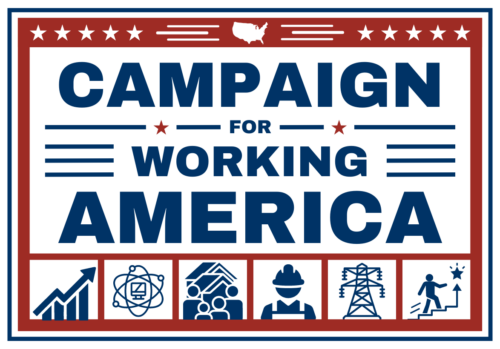
Competition is the lifeblood of a market system. Access to markets, choice, and fair prices and wages preserves consumer, worker, and entrepreneurial freedom. The benefits of this are tangible. Competition keeps the engines of economic activity and growth at a fuller throttle, promotes a more equal distribution of income and wealth, and a better standard of living. Moreover, markets rest on fundamental democratic principles that are essential for preserving economic freedom and opportunity.
The prospect of anything but hard-nosed competition in the markets that make up the U.S. free-market economy should trouble working Americans. The 2024 Democratic Party Platform recognizes the importance and role of competition in our political economy. It prioritizes promoting competition in markets that matter to working-class Americans, ranging from retail grocery, to agriculture, healthcare, drugs, fuel, transportation, finance, and construction.
An important reality is that market activity is largely fueled by consumers, workers, and entrepreneurs. For example, almost 70% of spending in the U.S. economy in the first quarter of 2024 was attributable to personal consumption expenditures. Small businesses were responsible for almost 45% of U.S. gross domestic product (GDP) in the mid-2010s. And labor contributed almost 70% to U.S. GDP in 2019. These are big numbers. They make clear the high costs to the U.S. economy of a lack of competition if consumers do not spend due to high prices, small businesses do not get a foothold because of an unlevel playing field, and workers lose their bargaining power to powerful employers.
Antitrust enforcement referees the markets. Without it, prices, wages, choice, and the quality of goods and services are dictated by powerful firms, not the rough and tumble of the competitive process. Working Americans are the first to recognize the importance of robust market competition. But for the last several years, consumers have grown frustrated by high prices for food, housing, healthcare, energy, and transportation. Small businesses are restrained by the high walls they must scale to get into some markets that are dominated by powerful firms. And workers can be limited by anticompetitive restraints on their mobility, wages, and benefits.
These limitations force some of the most important market participants to make tough choices about what to buy, where to work, and whether to start a business. With limited government resources to promote competition through antitrust enforcement and procompetitive regulation, policymakers must also make hard choices. These choices should reflect what is important to working-class Americans to help them live better, not ideological trends or political interests of the day. This segment of PPI’s Campaign for Working America takes on the question of how to best promote competition enforcement to reduce the cost of living and improve the lives of working Americans.’